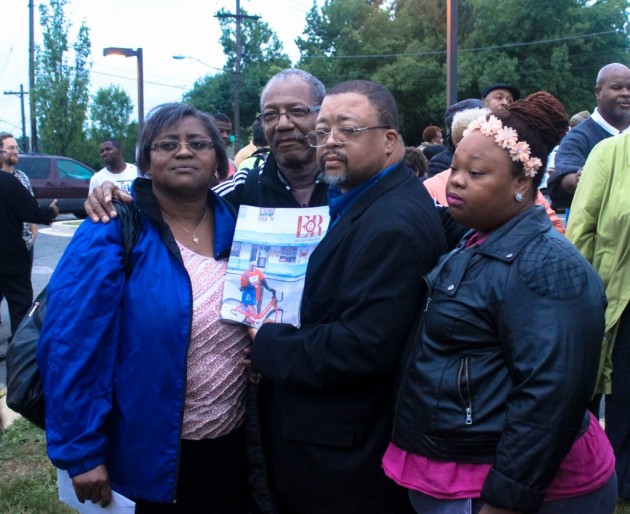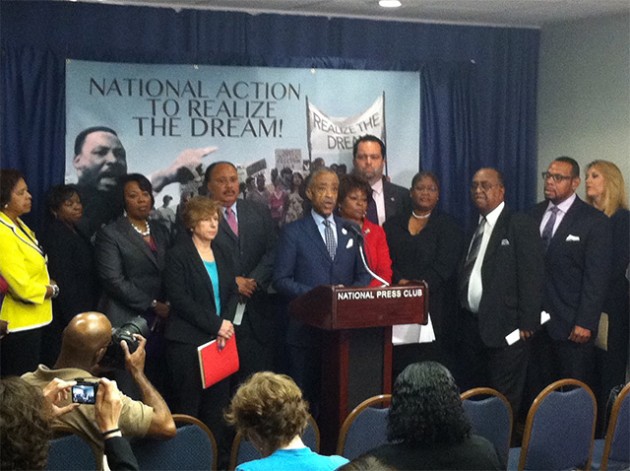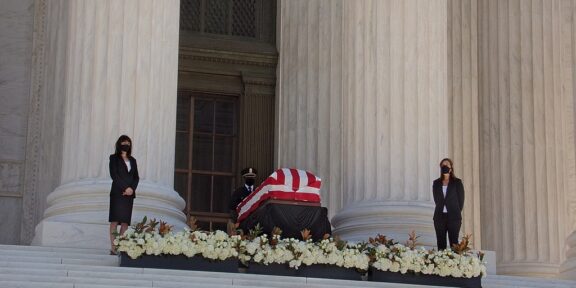A Look at the Ninth Street Flea Market
The sounds of old calypso from Trinidad and live rhythmic drumming could be heard, coupled with smells of international dishes like corn soup wafting in the cool breeze, and varieties of merchandise not all housed in one department store. This was the scene at Eighth Street Northwest and Florida Avenue Northwest last Sunday.
Diagonally opposite the Tropicana restaurant on Florida Avenue, the Ninth Street flea market spans almost an entire block from Eighth to Ninth Streets Northwest along the U Street corridor, and from Florida Avenue (U Street Northwest) to T Street Northwest. It bustled with activity even as the weather took a turn for the worse.
For many people, thoughts of discount shopping provokes images of JC Penney, Macy’s or even Marshalls when Labor Day, President’s Day or Memorial Day roll around. For some reason, hardly anyone thinks of flea markets to take advantage of discount shopping anymore … or so you might think.
“I would say I come here a lot,” Tobias Brown said as he ate his rice and peas, a native Jamaican dish. “There’s good food, good people and good buys,” Brown continued.
Although it seemed possible to find anything within the confines of a flea market from clothing to shoes and even electronics, Kwasi had one of the more impressive booths with a complete catalog of books, as well as educational and entertainment materials.
“I’m a teacher and counselor with adults,” Kwasi explained as David Rudder and Machel Montano blasted from his boom box. “I would give away books … and after completing the program, people would ask me if I was still giving [books] away,” he said.
A D.C. government employee, Kwasi has worked with different forms of literature for many years, and when he realized books were a hot commodity, he decided to turn his work into a lucrative past time.
Kwasi started a small, informal business and has had a booth at the flea market for eight years. “On one hand, it’s a hobby; on the other hand, it’s business,” he explained.
Although not as common as some of the other flea markets in the District, such as the Eastern Market or the Georgetown Flea Market, the Ninth Street flea market generates a buzz of its own.
The market opens only on weekends, and operations begin as early as 5 a.m. Kwasi confessed that he usually does not arrive until about 7 or 8 a.m., and that things wind down for the weekend at approximately 4:30 p.m.
Kwasi deals with mostly educational books; his arsenal includes some selections from the For Dummies lineup. “I don’t really push novels,” Kwasi explained. “When people come to buy books, they’re mostly looking for research stuff.”
Other interesting booths at the flea market included inventories of cultural items. Sellers offered small statues, paintings, fabric posters and even scented oils. There is also an apparent focus on electronics. Car radios, televisions and cell phone chargers were all readily available.
Discount shopping is in fact the name of the game with flea markets. Kwasi’s merchandise ranges from $5 to $15 for larger hardbacks. At electronic booths, phone cases seemed to be the most inexpensive items, starting at about $7, with chargers and changeable face plates for cell phones coming in next at roughly $13. At the larger electronic booths, car radios and small electronics were all more than $20, but usually less than $50.
Clothes and shoes settled at various points on the pricing spectrum and varied from booth to booth.
The demographic at the flea market was just as diverse as its products. Booth owners as well as customers covered the ethnic gamut.
The open air flea market operates on a first-come, first-served basis. Some spaces are “reserved,” since tenants have been doing business from the same location for many years. However, it isn’t impossible to set up a booth in the flea market as a newcomer.
With the existence of such neighborhood niches as the Ninth Street flea market, the presence of cosmopolitan flavor and culture in the District is undeniable. Amid a locale of rising condominiums and fast-paced businesses, it is institutions such as these that can help keep the community grounded in and reminiscent of the culture that lies beneath.
“A lot of people don’t even know this is here,” Brown said. “It’s a shame. They’re really missing out.”




